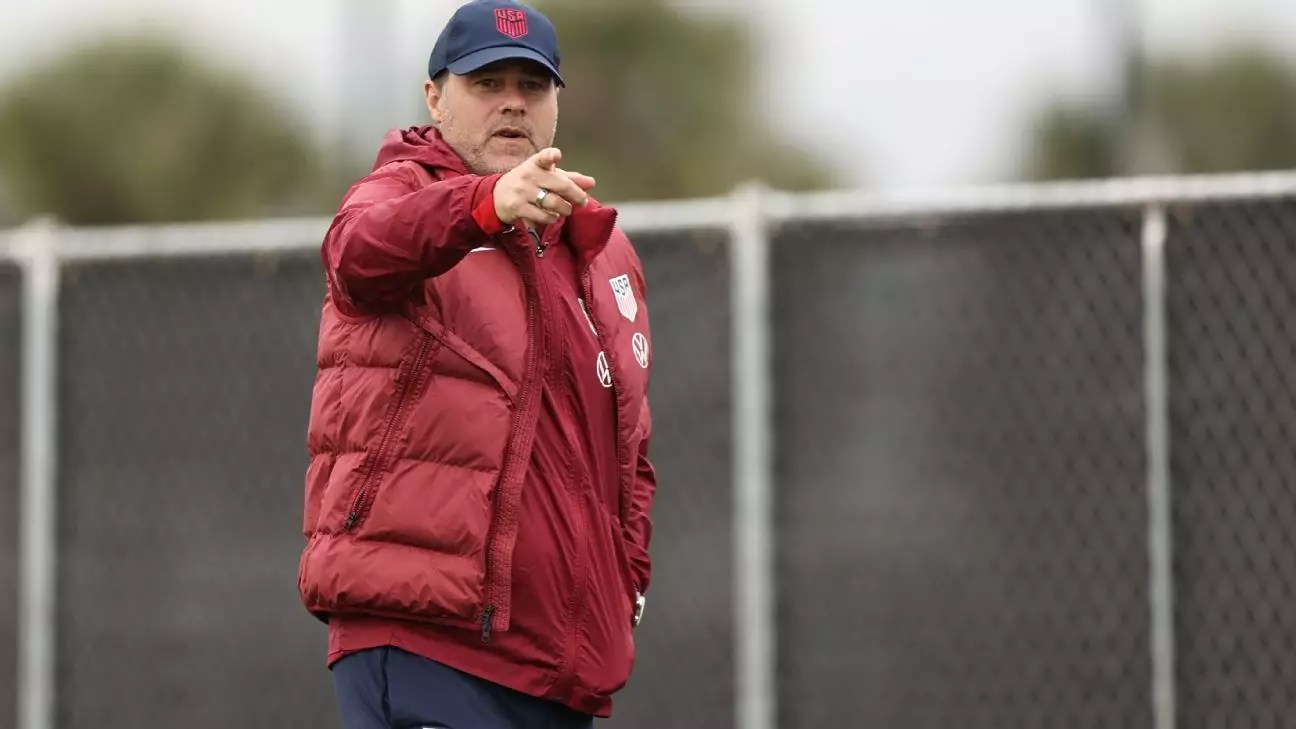In the ever-evolving world of international soccer, the United States men’s national team (USMNT) is at a crossroads, guided by the resolute leadership of head coach Mauricio Pochettino. Since taking the helm in September 2024, Pochettino has been vocal about the immense potential of American players, emphasizing that talent is not the issue—rather, it’s a question of mentality. He asserts that American players can compete with the likes of traditional powerhouses such as Spain and Argentina. However, the crux of his philosophy lies in the need for a “little more arrogance” in their approach to success.
Pochettino recognizes an inherent gap between the American squad and top-tier international teams like Argentina and Spain, yet he believes this divide is narrowing with each passing day. The coach’s insistence on cultivating a stronger belief system within his players underscores this point. For Pochettino, it’s about fostering an unshakeable confidence that the American team possesses the capabilities to not just participate, but to truly compete at the highest levels. With the 2026 World Cup looming as a beacon of opportunity—especially since the U.S. will be a host nation—these changes in mentality are paramount.
Pochettino’s focus extends beyond fostering confidence; he has laid out a systematic framework for how the team should approach their matches. Though the USMNT will not face any qualifiers in the lead-up to the 2026 tournament, the coach has made it clear that each game should be treated with the utmost seriousness and aggressiveness. Intrinsic to this is an emphasis on possession—a tactical staple that Pochettino holds dear. “Our principal objective is to have the ball in position, evolve our strategies, and, above all, score,” the coach stated.
To achieve this, Pochettino has set high expectations for his players. They are expected not just to participate, but to fully engage in every aspect of the game—be it defensively or offensively. He demands not just skill, but also focus, intensity, and a relentless spirit. “I think if you want to have a very balanced team in possession and out of possession, you need to be very demanding on both sides,” he articulated. This holistic approach to training will undoubtedly challenge the players, but it aims to prepare them mentally and physically for the rigors they will encounter on the international stage.
An intriguing aspect of Pochettino’s vision for the USMNT is his admiration for the Argentine mentality toward the sport. He believes that American players must channel that fervor and passion that Argentine athletes bring to the game. When discussing their training methods, he remarked on the emotional connection that players have when they represent their country. “When you lose a game, you cry, and you need to feel something in your skin… defending your badge is crucial,” he explained.
This mission to cultivate an emotional investment in the national team experience is about more than just skill on the ball; it’s about instilling a sense of pride and responsibility. The Argentine way is characterized by a profound commitment—a drive to protect their heritage and to perform with dignity on the field. Pochettino strives to instill that ethos in his players, as he sees it as a vital component of becoming a competitive force internationally.
Even within the first ten days of training, Pochettino’s approach is leaving a mark on the players. Many have described the coaching style as “demanding” and “intense.” Goalkeeper Zack Steffen noted, “It’s been intense, but it’s really good. You’ve got to be laser-focused.” This intensity is precisely what Pochettino aims to drill into his squad—a preparation for what lies ahead.
The upcoming friendlies against Venezuela and Costa Rica will serve as pivotal moments for the USMNT to translate Pochettino’s philosophy into action. These matches present an opportunity not only to assess players but also to test the foundational principles that have been emphasized in training. As they prepare to take the field, the expectation is not merely to perform, but to embody the transformation that Pochettino envisions—a team that plays with confidence, aggressiveness, and an unwavering belief in their identity.
As the USMNT gears up for what promises to be a transformative journey, the question remains: will they rise to the occasion? Pochettino’s challenge is clear: seize the moment and prove that American soccer belongs on the world stage. The future is uncertain, but with a shift in mentality, the possibilities are limitless.


Leave a Reply